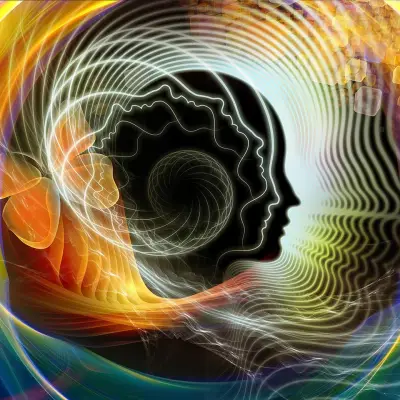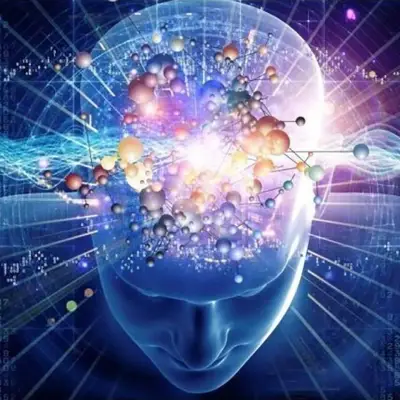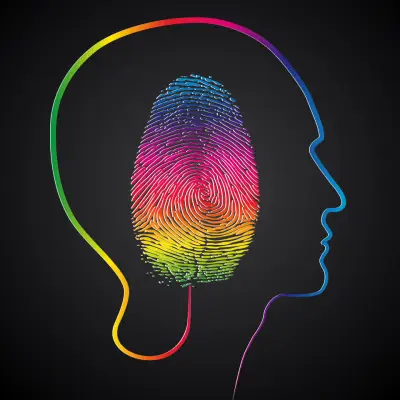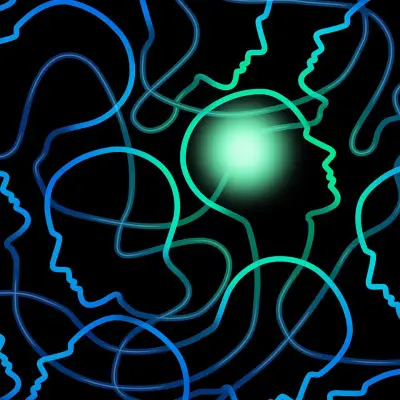Dreams are fascinating, mysterious, and often puzzling experiences that everyone has. If you’ve ever woken up wondering, “What does that dream mean?” or “Why did I dream about that person or situation?”, you’re not alone.
Interpreting dreams can be a compelling way to understand your subconscious mind. Whether you’re curious about a recurring dream or a strange scenario, or just want to understand the psychology behind dreams, this guide will provide you with tips for how to analyse and interpret your dreams.
Jump to:
Why Do We Dream?

Dreams are a series of thoughts, images, and sensations occurring in a person's mind during sleep. But why do we dream? Psychologists and scientists have pondered this question for years, and while there’s no definitive answer, several theories have been proposed.
One widely accepted theory is that dreams are a way for our brains to process emotions, solve problems, and make sense of the day’s events. Some experts believe dreams play a role in memory consolidation, helping us sort through memories and experiences. Others suggest dreams are simply random brain activity that our minds try to make sense of.
Recommended for you!
Best SellersDream Interpretation Theories
The interpretation of dreams has a long history, with many different approaches and schools of thought. The most famous dream interpreter is Sigmund Freud, whose book "The Interpretation of Dreams" revolutionised the way we think about our nocturnal thoughts.
Freud’s Interpretation of Dreams
Freud believed that dreams are a window into our unconscious mind. According to Freud, dreams are a form of wish-fulfilment, where repressed desires and unresolved conflicts come to the surface. He suggested that by analysing dreams, we can uncover hidden aspects of our psyche.
Freud’s method of interpreting dreams involves looking at the manifest content (the actual storyline of the dream) and the latent content (the hidden psychological meaning). For example, dreaming about a snake might not be about a literal snake, but rather a symbol of fear, danger, or even sexual energy.
Other Theories and Approaches
While Freud’s theories laid the groundwork, many other psychologists have developed their own methods of dream analysis. Carl Jung, for instance, believed that dreams are a way for the unconscious to communicate with the conscious mind and that they often contain archetypes – universal symbols shared across cultures.
Modern dream interpreters may use a combination of these theories, along with their own insights, to help individuals understand their dreams.
How Dreams Are Interpreted: Steps to Understanding Your Dreams

Interpreting dreams can seem daunting, but with a structured approach, it can be quite enlightening. Here are some steps to help you start analysing your dreams:
1. Keep a Dream Journal
One of the first steps in understanding your dreams is to keep a dream journal. Each morning, write down everything you remember about your dreams as soon as you wake up. Over time, you may notice patterns or recurring themes that can provide insight into your subconscious mind.
2. Identify Common Themes and Symbols
Dreams often use symbols to represent deeper meanings. Identifying common themes or symbols in your dreams can help you understand what your subconscious is trying to communicate. For example, dreaming about water might represent emotions, while flying could symbolise freedom or escape.
3. Reflect on Your Waking Life
Consider how your dreams relate to your waking life. Are there any connections between your dreams and what’s happening in your daily life? This reflection can provide valuable context and help you uncover the meaning behind your dreams.
4. Explore Your Emotions
Pay attention to the emotions you feel in your dreams. Emotions can be a key to understanding the significance of your dreams. Are you scared, happy, anxious, or relieved? These feelings can provide clues to what your dream might be telling you.
5. Use Dream Interpretation Resources
There are many resources available to help you interpret your dreams, from books and online dictionaries to professional dream interpreters. These resources can provide additional insights and help you understand the various symbols and themes in your dreams.
Common Dream Themes and Their Meanings

Some dreams are quite common and tend to have similar interpretations across different people. Understanding these common themes can provide insight into your subconscious mind and help you address any underlying issues. Here are a few examples:
1. Falling
Dreaming about falling is one of the most common dreams people experience. This dream often signifies a lack of control or feeling overwhelmed. It might reflect anxieties and insecurities in your waking life. The sensation of falling can also indicate that you are taking on too much and fear failing. To better understand this dream, consider areas in your life where you might feel unsupported or anxious and think about ways to regain a sense of stability and control.
2. Being Chased
Being chased in a dream typically represents avoidance or fear. It might indicate that you’re avoiding a situation or person in your life. This type of dream can be a signal from your subconscious that it's time to confront whatever you are running from. Whether it's a difficult conversation, a task you've been putting off, or an internal fear, addressing the root cause can help reduce the occurrence of this dream.
3. Flying
Flying dreams can be exhilarating and often signify a sense of freedom or escape. They might also reflect a desire to rise above a situation or gain a new perspective. Flying can represent a wish to break free from constraints and explore new possibilities. If you frequently dream of flying, consider what areas of your life you want to change or where you seek more freedom and independence.
4. Teeth Falling Out
Dreaming about teeth falling out is another common theme and can signify concerns about appearance or fear of embarrassment. It might also represent feelings of powerlessness or a loss of control. This dream often occurs during times of significant stress or transition, when you might feel vulnerable or anxious about how others perceive you. Reflecting on your self-esteem and addressing any insecurities can help mitigate these dreams.
5. Being Naked in Public
Dreaming of being naked in public often represents vulnerability or fear of exposure. It might indicate that you’re feeling insecure or unprepared in some aspect of your life. This dream can also reflect feelings of shame or guilt about something you've done or are considering doing. To understand this dream, think about situations where you feel exposed or judged and work on building confidence and self-assurance in those areas.
6. Losing Something Valuable
Dreams about losing something valuable, such as a wallet, phone, or even a person, can reflect feelings of loss or fear of losing something important in your waking life. These dreams often indicate anxiety about not being able to hold onto things or people that matter to you. It can also signify a fear of change or losing a part of your identity. Reflecting on your attachments and addressing your fears of loss can help reduce these dreams.
7. Failing an Exam
Even years after finishing school, many people dream about failing an exam. This dream often symbolises fear of failure or not meeting expectations. It might be a reflection of your self-doubt or pressure to succeed in a particular area of your life. Exam dreams can also occur when you’re feeling unprepared for a real-life challenge. To address these dreams, focus on building your self-confidence and preparing thoroughly for upcoming tasks or responsibilities.
8. Missing a Flight or Train
Dreams about missing a flight or train can signify feelings of missed opportunities or a fear of not being able to achieve your goals. These dreams often reflect anxiety about making the right decisions and the pressure of time running out. If you frequently have this type of dream, it might be helpful to evaluate your current life goals and ensure you are on the right path to achieving them.
9. Being Trapped
Dreaming about being trapped can signify feelings of being stuck or constrained in your waking life. This dream often reflects a sense of helplessness or inability to escape a situation. It can also represent feeling confined by responsibilities or expectations. To understand this dream, think about areas in your life where you feel restricted and consider what changes you can make to regain a sense of freedom and autonomy.
10. Meeting a Celebrity
Dreams about meeting a celebrity can reflect your aspirations and desires. This type of dream often signifies a wish to be recognised or to achieve a certain level of success. It can also represent qualities you admire in the celebrity that you wish to cultivate in yourself. Reflecting on your goals and aspirations can help you understand the meaning behind this dream and take steps towards achieving your ambitions.
Dream Analysis Psychology: The Science Behind It
Dream analysis is a significant aspect of psychology, often used in therapy to help people understand their inner thoughts and emotions. Psychologists who specialise in dream analysis use various techniques to interpret dreams and uncover their meanings.
What is Dream Analysis?
Dream analysis involves examining the content and symbols in dreams to understand the subconscious mind. It’s a method used in psychotherapy to help people gain insight into their thoughts, feelings, and behaviours.
How Do Psychologists Analyse Dreams?
Psychologists analyse dreams by exploring the dreamer’s personal experiences, emotions, and associations with the dream content. They might ask questions about the dream’s storyline, the emotions felt during the dream, and any significant symbols or themes. This process helps uncover the underlying issues that might be influencing the dream.
Frequently Asked Questions About Dream Interpretation
What Do Bad Dreams Mean?
Can Dreams Predict the Future?
While some people believe that dreams can predict the future, there’s no scientific evidence to support this. However, dreams can sometimes provide insight into your subconscious thoughts and feelings, which might help you make better decisions in your waking life.
Why Do People Appear in Your Dreams?
People in your dreams often represent aspects of yourself or your relationships. They might symbolise certain traits, emotions, or experiences that you associate with that person.
Do Your Dreams Have a Message?
Dreams can carry messages from your subconscious mind. They might be trying to tell you something about your emotions, desires, or unresolved issues. Paying attention to your dreams and reflecting on their meanings can provide valuable insights into your inner world.
What Does It Mean if You Dream About Someone?
Dreaming about someone can have various meanings depending on the context and your relationship with that person. It could signify that you have unresolved feelings towards them, whether positive or negative. Sometimes, it might simply mean that they have been on your mind recently. Analysing the role they play in your dream and the emotions you feel can help you understand why they appeared.
What is the Most Common Negative Dream in the World?
One of the most common negative dreams people experience is being chased. This dream often signifies feelings of anxiety, fear, or avoidance of a particular issue in waking life. It can also indicate that you are feeling threatened or pressured by someone or something. Understanding what or who is chasing you can offer insights into what might be causing stress or fear in your life.
Can Nightmares Be a Warning?
Nightmares can sometimes serve as a warning, alerting you to unresolved issues or significant stressors in your life. They might indicate that you need to address certain fears or conflicts to find peace. While they are not necessarily predictions of future events, they can highlight areas of your life that need attention or improvement.
Why Do My Dreams Feel So Real?
Dreams can feel incredibly real due to the intense emotions and vivid imagery they often involve. During the REM (Rapid Eye Movement) stage of sleep, your brain is highly active, almost as if you were awake, which can lead to very lifelike dream experiences. The realism of your dreams can sometimes reflect how deeply certain thoughts, feelings, or memories are affecting you.
What Do Recurring Dreams Mean?
Recurring dreams typically signify that there is an ongoing issue or unresolved conflict in your life that needs attention. These dreams might repeat because your subconscious is trying to draw your conscious mind’s attention to something important. Reflecting on these recurring themes and considering how they relate to your waking life can help you understand and address the underlying issue.
Do Your Dreams Reflect Your True Feelings?
Dreams often reflect your true feelings, even those that you might not be consciously aware of. They can reveal hidden fears, desires, and emotions that you might be suppressing during your waking life. By paying close attention to your dreams and reflecting on their content, you can gain a deeper understanding of your true emotional state and address any issues that might be affecting your well-being.
Can Dreams Be Influenced by External Factors?
External factors such as stress, diet, sleep environment, and medications can influence your dreams. For example, going to bed stressed or anxious can lead to more vivid or negative dreams. Similarly, certain foods or medications can affect the quality and content of your dreams. Being mindful of these factors and creating a peaceful sleep environment can help promote more positive and restful dreaming experiences.
What is Dream Therapy?
Dream therapy is a form of psychotherapy that focuses on analysing and interpreting dreams to help people understand their subconscious mind. Dream therapists work with clients to explore the meanings of their dreams, uncover hidden emotions, and address unresolved issues. This therapeutic approach can be particularly helpful for those dealing with recurring nightmares, trauma, or significant life changes.
Why Do We Forget Our Dreams?
We often forget our dreams because the brain prioritises the processing of waking life memories over dream memories. Additionally, the neurochemical environment during sleep, particularly during REM sleep, differs significantly from that of waking life, making it harder to retain dream memories. Keeping a dream journal and writing down your dreams as soon as you wake up can help improve dream recall.
Are Dreams Universal?
While the content of dreams can be influenced by personal experiences and cultural background, many dream themes are universal. For instance, dreams about falling, being chased, or losing teeth are common across different cultures and societies. These shared themes suggest that certain aspects of the human experience and subconscious mind are universally expressed through dreams.
Recommended for you!
Best SellersStudy Dream Analysis for £29
Understanding your dreams can be a powerful tool for personal growth and self-awareness. If you’re intrigued by the idea of going deeper into your dreams or helping others interpret theirs, consider taking a course to enhance your knowledge and skills, like our Dream Analysis Therapy Diploma Course. For a limited time, you can enrol for a discounted price of £29.













